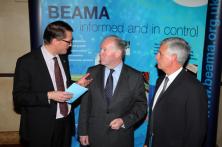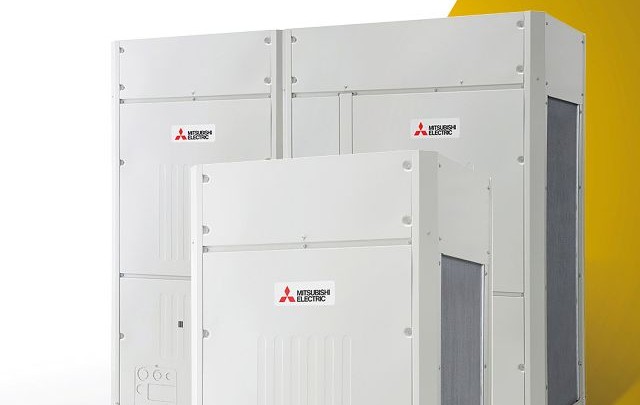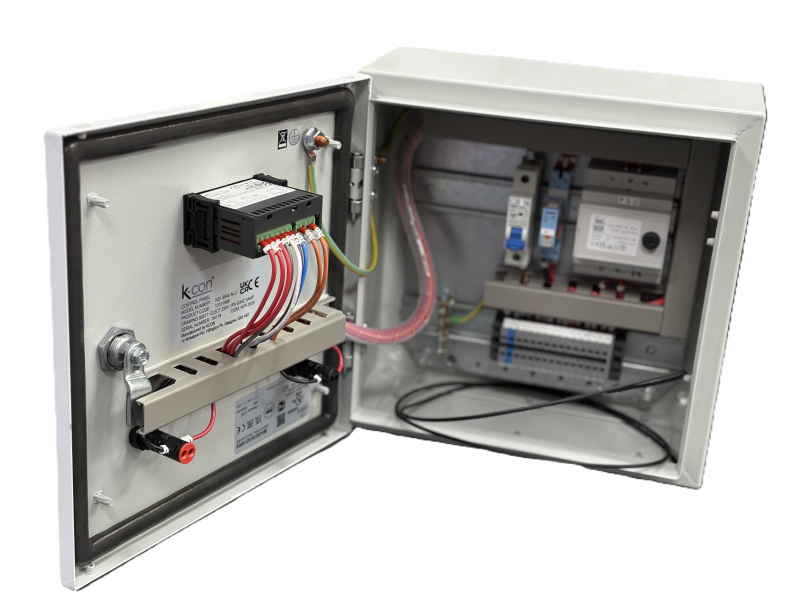Giving the Coalition Government's views on the future issues of energy policy, Charles Hendry MP, Minister of State for Energy, said BEAMA members are playing a major role in the energy market and the electrotechnical industry has a key role in facing the challenges and opportunities.
As guest speaker at the association’s Annual Event at London’s Institution of Engineering and Technology (IET), he emphasised the Government’s commitment to delivering a low-carbon economy addressing climate change and ensuring energy security.
Mr Hendry commented that delivering that commitment represented a ‘major challenge’.
He said with energy demand likely to double by 2050, and energy resources becoming harder to extract, often in less politically stable parts of the world, climate change commitments mean change is needed.
The Minister suggested one answer is to transform Britain into a low-carbon economy and become a world leader in the process. This means using fewer fossil fuels more efficiently, looking to alternative energy sources, revolutionising housing, urban infrastructure and transport systems – changing behaviour.
Electrification
A substantial level of electrification of heating, transport and industry would be needed with electricity supply potentially doubling. Decarbonised electricity could be used more efficiently than other fuels and can be scaled up to meet demand.
Charles Hendry expressed the view that the electricity grid system must be revolutionised as peak loads and expanding electricity generation from renewable generation present challenges to its operation. Demand-side flexibility could help by giving consumers new incentives to shift demand to match electricity generation, he said.
Strategy
Stating that Government should set the strategy and regulatory framework, the Minister went on to say that to reduce energy it can incentivise businesses and households. But, to meet Government goals dynamic markets, which deliver, are required, alongside investment, technological development and reform of the grid. Mr Hendry said that Smart Grids, micro-generation and energy efficiency would help.
Businesses and householders must be encouraged to deploy additional low-carbon electricity generation; Government incentives and help would prove a ‘step change’ in what has previously been done. Consequently, the Feed-In-Tariff Scheme (FITS) has been improved to drive-up use of small-scale micro-generation in business premises, public sector buildings and the home. Wind, solar photovoltaics, anaerobic digestion, domestic-scale combined heat and power, plus hydro technologies could replace centrally generated electricity with that from the property itself.
FITS rewards those taking this step with the Green Deal designed to make energy-efficiency affordable for all. It will encourage home energy-efficiency improvements for no upfront cost, repaid through energy bills. Energy bills, demand and emissions would be reduced.
Smart grids
The Minister continued: Smart Grids deploy new and existing technologies making the network use energy more efficiently, facilitating more low-carbon generation from increasingly diverse energy sources.
The Smarter Grid would reduce network investment and enable other system technologies, such as demand-side management and storage, that lead to avoided generation investment and further network savings.
He explained that’s why Government is investing in Smart Grid deployment and planning through Ofgem Smart Grid trials and demonstrations on the electricity network, Smart Grid pilots via DECC and an Office of Low Emission Vehicle competition for electric vehicle infrastructure. While the Smart meter rollout programme would be a major component of the Smart Grid.
Smart metering
Describing Smart metering as the policy ‘at the heart of these energy-change programmes’, Mr Hendry commented that the Government believes every home and business should have Smart energy metering. This is because Smart meters are a vital element in the transition to a low-carbon economy, ensuring an affordable, secure, sustainable energy supply.
Highlighting their benefits as providing the information consumers need to manage their energy consumption, cut its consumption, save money, Smart meters would revolutionise customer service through accurate billing, innovative tariffs, easier switching of supply. Additionally, they would help the energy industry manage the generation/distribution system more cost-effectively, provide Smart data enabling more informed network investment, Smart grid development. Plus, complement initiatives like the Green Deal - key to improving the energy-efficiency of the housing stock.
He pointed out that Smart metering would be a platform for the uptake of electric vehicles with the potential to charge them at home using Smart meter controls maximising the use of cheap, low-carbon electricity, or refueling at charging points paying for the electricity through the home bill.
With July 2011 seeing the publication of the Smart Metering Prospectus setting out the detailed proposals for delivering Smart metering, the Minister said BEAMA had been fully engaged in the fact-finding and consultation process.
Opportunities for industry
With the Government’s environmental and energy goals presenting a considerable challenge, Mr Hendry urged they were an opportunity too for BEAMA members, with the electrotechnical industry having a key role in delivering the technological solutions shaping how we supply and use electricity.
He stressed that in business terms this ‘transformational agenda is worth billions’ and provides a competitive edge in the global economy. The UK has the expertise to provide cheaper, cleaner, Smarter technologies and the opportunity to lead the process.
Concluding, the Minister said the challenges would fall to Government, the regulator,gas and electricity industries, to businesses and household to deliver the low-carbon economy, secure supplies and environmental improvements, which would transform the world of energy.
BEAMA welcomes Minister’s views Dr Howard Porter, BEAMA’s CEO commented: “We very much welcome Mr Hendry’s insight into the Government’s aims and plans. BEAMA members will continue to be fully supportive and engaged with the Government, by providing the appropriate advice and product and technological solutions to help it achieve its environmental and energy objectives.”




















